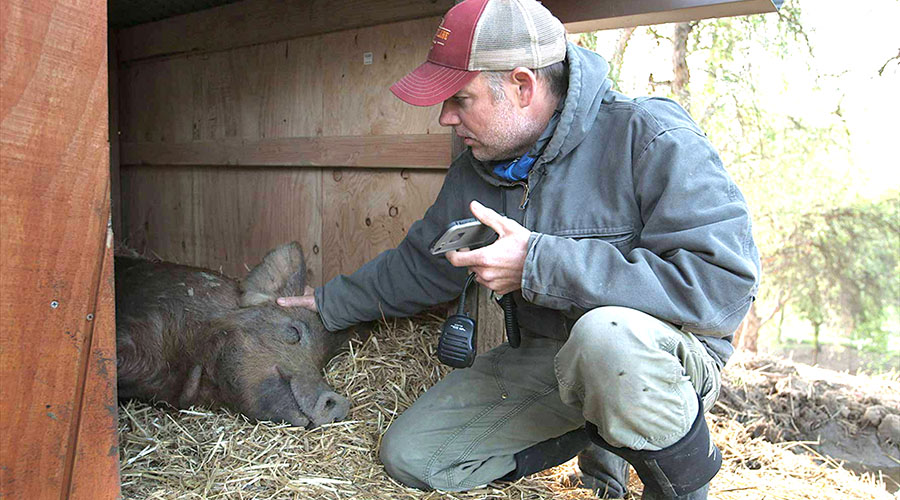Like all good documentaries, The Biggest Little Farm leaves you informed and entertained. It also fills you with a sense of how far removed we have become from the processes that provide our sustenance. We know little about the massive differences between ecologically unsound corporate farming methods and small farms with their green practices. Regardless of the type of diet you consume, it’s important to know the differences between the two to make informed decisions.
Set into action by being evicted from their tiny apartment due to their dog’s incessant barking, John and Molly Chester make the life changing decision to leave the city life behind and learn to live off the land. This takes the form of them buying a dilapidated farm and bringing it back to life with the intent of it being an organic, pesticide and cruelty free environment. They illicit the help of a biodiversity expert and begin their journey to bring Apricot Lane Farms back from the brink.
Writer/director and along with his wife, main subject John Chester had a background in cinematography and it shows. Filmed over an eight year period, the work is filled with arresting footage of the wonderment of nature. This beauty is needed too as it helps to balance out the tone. Mother Nature is never short of death and decay and the film doesn’t shy away from the difficulties they faced with natural predators and infestations.
The structure of the film fills you with the sense of the mammoth proportion of their undertaking and the arduous and at times heartbreaking reality of the effort. The story ebbs and flows and there are small victories along to way to keep your spirits up. By film’s end you are completely invested in their struggles and their ultimate success gives you the warm and fuzzies.
Rob Hudson
The Biggest Little Farm is currently playing at Dendy Cinemas – head to www.dendy.com.au for more information and tickets.




